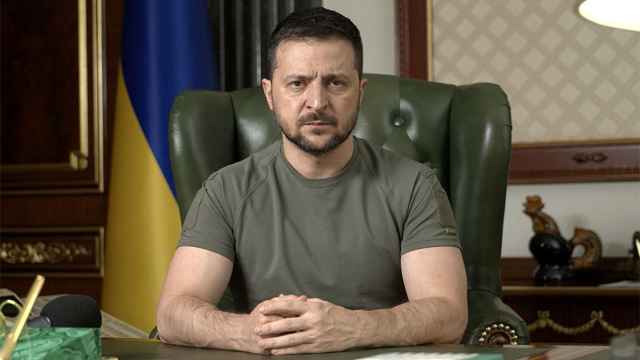President Dmitry Medvedev recently wrote on his blog that he favors privatizing state-controlled media.
One respondent replied: “I always look forward to your blog entries. It is a rare occasion when a country’s leader has enough courage to speak directly with the people and publish their criticisms on his own site. … I don’t agree that your plan to privatize the media will improve them.”
Medvedev has a history of flip-flopping on this issue. As recently as last July, while speaking in Yekaterinburg, the president stated emphatically that he saw no need to eliminate state-controlled media. Then, in his November presidential address, Medvedev called for the media to be privatized. Now he has brought the discussion to the Internet.
Interestingly, that gesture of openness sparked a minor revolt against him. In the two weeks since Medvedev posted his pro-privatization statement, 131 responses were posted — only 19 of which were supportive and 71 strongly opposed. The rest were ambivalent.
One opponent to the idea wrote: “I do not agree with the president. … The Russian people are intelligent, and they understand quite well how things are done in the country.”
What have Russia’s intelligent people learned about private media in the past 20 years? Let’s apply their logic to the presidential blog and see how it would change if the privatization process started there.
Medvedev’s blog is a prime example of state media. First, it only provides information from an authoritative source.
Second, it appears to have plenty of money for editors and proofreaders, who clean up the discussion so that we receive a wide-ranging dialogue between the president and the people devoid of grammatical errors and foul language.
If his blog is privatized, the first task will be to cut costs, which would probably mean dropping the editors and lowering the quality of the dialogue.
Next, he’ll have to find ways to generate more traffic on his site, and that means eliminating any discussion of dull topics such as tax policy, young scholars, space technologies, telecommunications and nuclear power. In their place, he’ll have to make room for commentary on the personal life of pop star Alla Pugachyova or the exploits of television it-girl Ksenia Sobchak. (Many of his blog respondents believe that privatized media will only lead to an increase of yellow journalism.)
One of those intelligent Russians anticipated that if Medvedev sold his state-controlled blog on the official Kremlin’s web site, “big business will buy out the media and force it to promote its own interests. The people will be manipulated in favor of the oligarchs.”
In this, both opponents and supporters of media privatization agree that state-controlled media lie no less than the private media. Both cannot be trusted to produce objective news coverage.
But those who favor state control over the media add that with the government pulling the strings, it is at least clear whose interests are being promoted. What’s more, they remain hopeful that the authorities will one day come to their senses and finally start managing the media in the interests of the public.
After receiving this rebuke to his privatization plan, the democracy-loving Medvedev will probably reverse his position once again. But before he does so, I would advise him to ponder over the words of the respondent who wrote, “Issues concerning the media are too serious to fall into the simplistic framework of private or state-controlled.”
Alexei Pankin is editor of WAN-IFRA-GIPP Magazine for publishing business professionals.
A Message from The Moscow Times:
Dear readers,
We are facing unprecedented challenges. Russia's Prosecutor General's Office has designated The Moscow Times as an "undesirable" organization, criminalizing our work and putting our staff at risk of prosecution. This follows our earlier unjust labeling as a "foreign agent."
These actions are direct attempts to silence independent journalism in Russia. The authorities claim our work "discredits the decisions of the Russian leadership." We see things differently: we strive to provide accurate, unbiased reporting on Russia.
We, the journalists of The Moscow Times, refuse to be silenced. But to continue our work, we need your help.
Your support, no matter how small, makes a world of difference. If you can, please support us monthly starting from just $2. It's quick to set up, and every contribution makes a significant impact.
By supporting The Moscow Times, you're defending open, independent journalism in the face of repression. Thank you for standing with us.
Remind me later.





